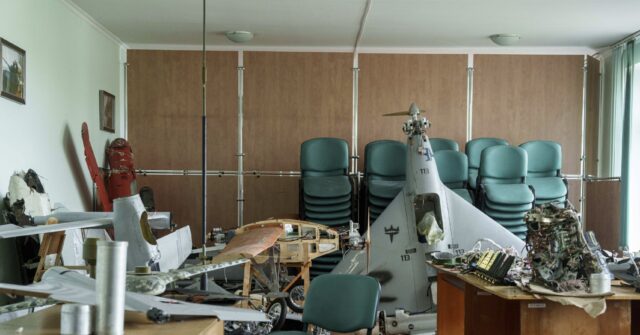Recently, about 200 young women from various African nations, aged between 18 and 22, have been recruited to work in a factory located in Russia’s Alabuga Special Economic Zone, which focuses on assembling Iranian-designed drones intended for use against Ukraine. These women, who include recruits from countries such as Uganda, Rwanda, and Nigeria, were reportedly misled about the nature of their employment. Many were drawn in by promises of a work-study program that offered educational opportunities, but they found themselves instead facing long hours of labor under stringent surveillance in a potentially toxic work environment. In interviews, they described conditions that were far removed from those they were led to expect, including hard labor with hazardous chemicals that caused skin irritations, all exacerbated by false promises related to compensation and significantly lacking in protective measures during work.
An extensive investigation conducted by the Associated Press (AP) involved analyzing satellite imagery of the Alabuga facility, review of leaked internal documents, and direct interviews with several of the involved women. The research unearthed that, following a significant deal between Russia and Iran in 2022, the Alabuga factory has evolved into Russia’s primary drone production site, with plans to manufacture approximately 6,000 drones annually by 2025. This is occurring against a backdrop of labor shortages spurred by ongoing military conflicts, prompting Alabuga’s recruitment drive targeting various foreign workers, especially women from diverse African nations and beyond. The comprehensive nature of these operations, alongside the increasing production scale, highlights an unsettling trend of exploitation and potential trafficking in the context of global labor forces engaged in war-related industries.
Despite the promises of financial compensation reaching up to $700 a month, the actual wages for many of the women involved fell significantly short, estimated to be around $500. Reports suggest several women struggle to send money back home because of banking restrictions imposed on Russia, although some still managed to transfer limited amounts. The working conditions included extensive shifts of up to 12 hours with irregular days off, leading many to experience disillusionment regarding the stark contrast between expectations and realities upon arrival in Russia. While some found pride in earning money or enjoying cultural immersion, the majority expressed dissatisfaction with their overall experience, indicating they had been trapped in a dire employment situation far removed from the educational opportunities initially promoted.
Human rights organizations have expressed concern over the treatment and conditions of these women, with claims that the recruitment process could amount to trafficking if it involved deception for exploitative purposes. The U.N. has noted that the Russian government’s actions in this context evoke serious legal implications, especially concerning their obligations established through the U.N. Convention Against Transnational Organized Crime. The AP contacted various governments of the women’s home countries regarding the recruitment project, but most did not respond comprehensively, highlighting potential oversight and lack of awareness concerning the issues arising from such employment practices.
In Uganda, governmental responsibility has prompted concern over the recruitment of young women for labor in foreign territories. Officials are particularly wary of the vulnerabilities faced by female migrant workers, who often occupy the poorest labor positions. Betty Amongi, Uganda’s minister for Gender, Labour, and Social Development, voiced specific concerns regarding the welfare of these women while in Russia, noting the urgency for clarity over employers and working conditions. However, conflicting statements have arisen, as the local government suggested an absence of Ugandan women in the program despite claims from Alabuga’s social media presence indicating otherwise.
The broader implications of the Alabuga drone production initiative cannot be overstated. The factory has reportedly contributed significantly to the escalation of drone assaults in Ukraine, with thousands of drones launched since the beginning of the war, particularly in the last year. The reported efficacy of these drones appears questionable, as many failed to reach their targets, which can be attributed to factors like enhanced Ukrainian air defenses or possibly poor craftsmanship from a workforce largely consisting of inexperienced foreign recruits. The Alabuga project is shamelessly advertised through a modern social media campaign that presents an image of prosperous labor—completely omitting the factory’s darker role at the frontline of Russia’s military endeavors. This deceptive portrayal continues to attract participants under the guise of opportunity, repackaged as an appealing venture for young women seeking skill enhancement and income without disclosing the realities of their working environment.

